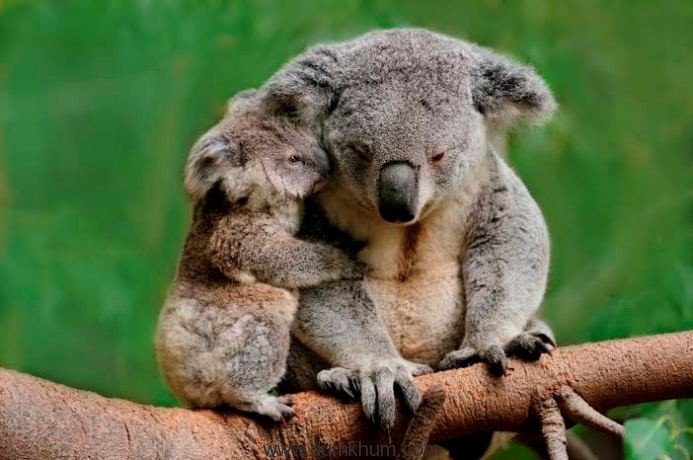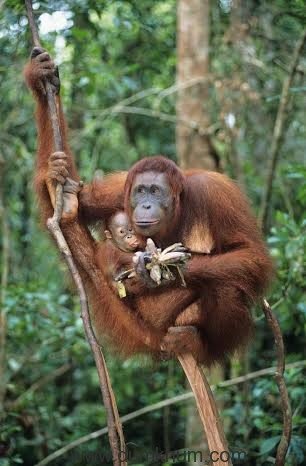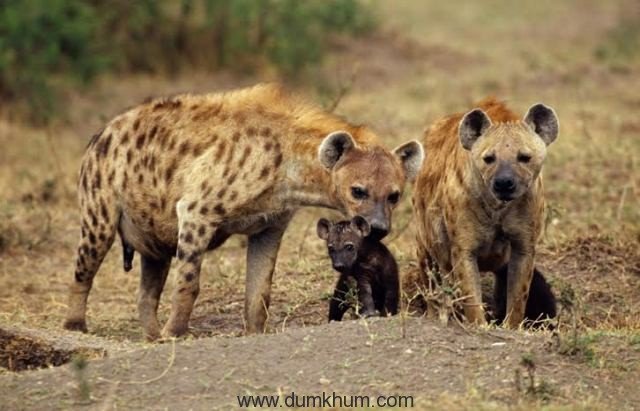EXPERIENCE THE SPECIAL BOND OF MOTHERHOOD IN THE WILD ON ANIMAL PLANET’S MOTHER’S DAY SPECIAL

Humans aren’t the only ones who take extraordinary steps to protect, nurture and raise their young. The animal kingdom is replete with stories of mothers that sacrifice equally, impart all their life’s learning and experiences with their younglings playing a crucial role in bringing warmth in the wild world. This Mother’s Day, Animal Planet brings its viewers a day full of amazing stories that put spotlight on some of the outstanding animal mothers going the extra mile for their young.
MOTHER’S DAY SPECIAL will air on Animal Planet on Sunday, May 8 from 12 noon to 8 pm.
Watch gripping tales of love, devotion and ultimate sacrifice in motherhood. Amarobia Spider mom sacrifices her life to be often eaten by her newborns. Koalas feed on poisonous eucalyptus leaves and builds up tolerance in her babies by feeding them her own faeces. Orangutan moms nurse their offspring until they reach the age or 6 or 7.
Explore the trials and triumphs of motherhood on the wild side. How do mother hyenas survive, thrive and care for their young? How Bengal tigress provides for young cubs and trains them to hunt for the Sambar and Chital deer that share their home? How territorial issues cause tensions between wild-wives of Savannah – hyena Lauren and lion Dorothy? Witness how a young lioness in Kenya sets aside her predatory instincts to adopt a baby oryx antelope and mother it with infinite tenderness for 16 days. Savour some of the most intimate and extraordinary mother-child moments of the planet’s most amazing creatures in the following episodes – Natural Wild Mothers and Babies, Mama Hyena, Heart of a Lioness and Wildwives of Savannah Lane, amongst others.
Some of the episodes in the Mother’s Day Special include:

Heart of a Lioness
There are some places on earth where legends come alive. An inversion of nature baffles the scientific world when a young lioness in Samburu Reserve, Kenya, sets aside her predatory instincts to adopt a baby oryx antelope and mother it with infinite tenderness for 16 days. Foregoing her most basic needs she proved both a compassionate and wise protector.

Mama Hyena
Hyenas have been given an unfairly negative reputation in folklore and popular media, because of their ungraceful, even grotesque, physical features. Despite their notoriety, spotted hyenas are truly a curiosity of nature. Intelligent creatures, they follow a sophisticated social system that is not immediately obvious to the untrained eye.
Wildwives of Savannah Lane
Revisit the protagonists from Queens of the Savannah: Victoria who raised her four baby cheetahs alone, Laura who had to fend for her two lion cubs and hippopotamus Cathy. And watch how territorial issues cause tensions between hyena Lauren and lion Dorothy. Can they co-exist without creating conflict?
About Animal Planet
Animal Planet is the world’s only brand that immerses viewers in emotional, engaging and passionate content devoted to animals – from wildlife to pets. Animal Planet connects humans and animals with rich, deep content and offers animal lovers access to entertainment, information and enrichment. Animal Planet launched in Asia Pacific in 1998 and is currently distributed to 178 million subscribers in the region.
SUPER MUM FACTS
Amarobia Spider mom sacrifices her life to be often eaten by her newborns. She generally hatches 100 little spiderlings who eat extra eggs and their own siblings to survive and then they go greedily to their mother. She tries to brush them off and instead of fleeing as they start to eat her alive, she stays to ensure their survival.
The highly intelligent organgutan mom builds her nest almost daily and never puts her babies down, generally nursing offspring until they reach the age or 6 or 7 — that's the longest dependence of any animal on Earth.
Koalas feed on poisonous eucalyptus leaves and their digestive track can tolerate this, thanks to its bowels that are packed with special bacteria that detoxify the leaves. Babies (or joeys) aren't born with these superpowers; hence Momma Koala comes to the rescue and helps them build up their tolerance by feeding them her own faeces.
A Mouth Brooder hovers up her young to protect them from being eaten. The trick isn’t easy. Parents and babies need to be able to recognize each other. You wouldn’t want to end up in the wrong mouth.
The Cayman Crocodile mother digs the 16 centimeter hatchlings out of the nest and carries them all to the river. She guides them all night and day for a few weeks. Crocodile hatchlings can catch insects and eat snails. Their mother, babysitting, generally goes hungry.
A Mule Deer mother gives birth to well-developed babies who are able to run almost instantly right after the birth.
A thousand pound polar bear gives birth to a one pound baby. That would be like us giving birth to a baby smaller than, a golf ball. The cub stays with its sleepy mother for ten weeks, feeding off her fat which has been converted into energy rich milk. The mother loses half her body weight feeding her cubs.
Mountain gorilla babies suckle for three years and remain within sight of their mothers for at least a decade. They live with extended families, with more than 20 uncles, aunts, cousins, brothers and sisters.
In Antarctica, an Emperor penguin lays only one egg. There is no food on the ice, so the mother leaves to search for food. In the meantime, the father takes care of the egg and makes a bond with his chick. The mother returns with food in about 65 days.
The eggs laid by ostrich mothers are protected by such strong shells that very often, the mothers have to help their chicks come out.







